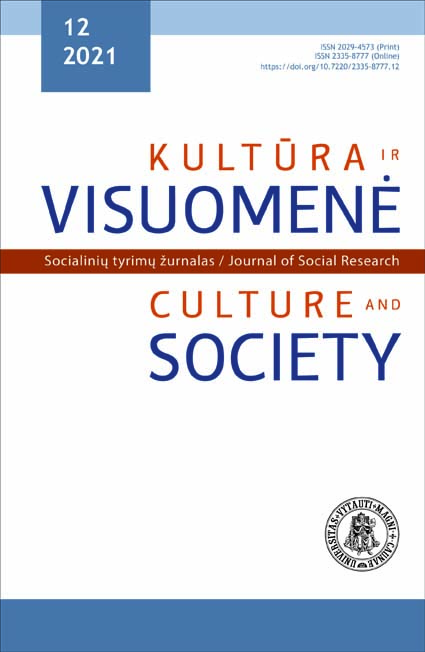Autizmas ir neurotėvystė / motinystė: „kai vien meilės nepakanka“
‘Autism and Neuro-parenting: “When Love is Not Enough”
Author(s): Daiva BartušienėSubject(s): Psychology, Neuropsychology, Family and social welfare, Inclusive Education / Inclusion
Published by: Vytauto Didžiojo Universitetas
Keywords: autism; neuroparenting; neuro-fatherhood/motherhood; neuroscience; parenting culture;
Summary/Abstract: In contemporary studies of parenting, culture academics have shown huge interest in the phenomenon of neuro-scientific motherhood and neuroparenting, which has predominantly focused on a child’s brain plasticity and vulnerability, and parents – especially mothers – as primary caregivers and brain-builders (Apple, 1995; Bruer, 1999; Macvarish, 2016). Neuroscience is the most influential field of science that forms contemporary concepts and practices of parenting and child-rearing during the first three years of childhood (Hays, 1996; Macvarish, 2016; Rawdin, 2019; etc.) The theoretical basis of the article is the social critique of neuroparenting given by sociologist Jen Macvarish. In her book “Neuroparenting: The expert invasion of family life”, Macvarish discusses the neurocentric approach to children, parenting and family life. The social critique of neuroparenting given by Macvarish is particularly relevant when it is linked to children with atypical neurological conditions, such as autism. Therefore, the article seeks to show that neuroparenting lacks a broader socio-cultural context, as it focuses only on neurotypical children with normal neurological development, but does not include other conditions of neurodiversity. The article discusses the following aspects of neuroparenting: “the myth of the first 3 years”; the argument “ do more and do it earlier”; and the expectation constructed by experts – “you can have a child that you want”. These are later combined with empirical data, i.e. 34 semi-structured interviews with parents raising autistic children. The article argues that the subjective experiences of neuro-motherhood/fatherhood not only embodies the many aspects of neuroparenting, but also expands the socio-cultural context and reflects a much broader socio-cultural context of the contemporary neuroparenting movement. It also supplements Macvarish’s social critique of neuroparenting with new empirical arguments from the perspective of neurodiversity.
Journal: Kultūra ir visuomenė: socialinių tyrimų žurnalas
- Issue Year: 12/2021
- Issue No: 1
- Page Range: 55-87
- Page Count: 33
- Language: Lithuanian

